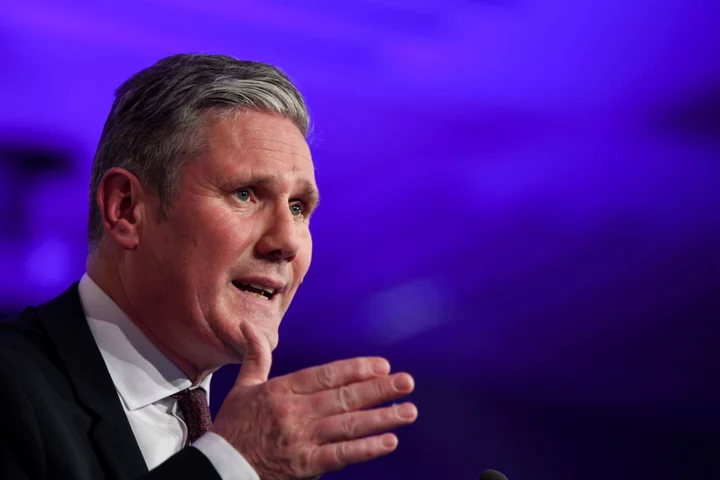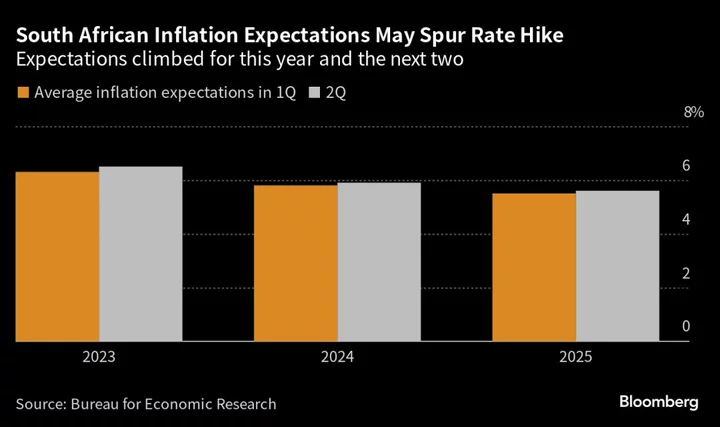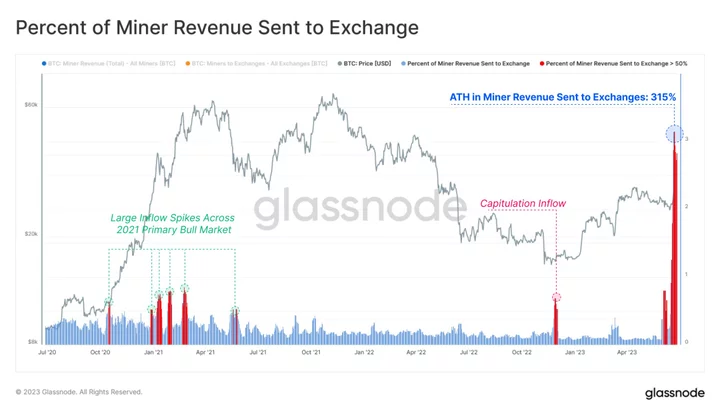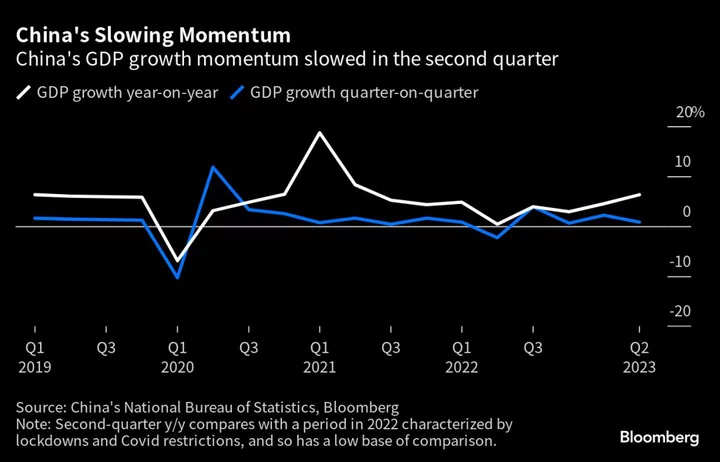Labour is considering plans to borrow to invest in British industry, people familiar with the discussions said, despite expectations that the Conservative government will use the effort to accuse the opposition party of reckless spending.
Labour leader Keir Starmer and shadow chancellor of the exchequer Rachel Reeves led a series of policy discussions over the summer focused on boosting investment in the UK if they win the next general election, according to people familiar with the talks. They’re now homing in on a limited pledge to fund some investment through borrowing, they said.
Britain’s main opposition party is eyeing a return to power after more than 13 years out of office in a vote that’s widely expected next year. But conscious that voters traditionally trust the governing Conservatives to manage the economy more than they do Labour, Starmer and Reeves are wary of repelling voters with unfunded promises.
Bolstering Britain’s lackluster investment will become a centerpiece of Labour’s manifesto as it seeks to pitch itself to voters as the party that can achieve economic growth. Raising UK growth “is the central mission of the incoming Labour government, everything else hangs off that,” Starmer told the BBC on Sunday.
Read More: UK’s Starmer Says He’s ‘Bang on Schedule’ to Win Power
The policy work over the summer centered on how to ensure a Labour government could demonstrate a return on any investment funded by borrowing, they said.
Some senior Labour figures, including former shadow chief secretary to the Treasury Pat McFadden, argued for a cautious approach and only a small amount of extra borrowing, warning that Prime Minister Rishi Sunak’s Tories would likely criticize it as reckless. However, there was agreement on the principle that careful public investment could stimulate private investors, the people said.
Government debt is currently close to 99% of gross domestic product, a level last seen in the early 1960s. When Sunak’s predecessor, Liz Truss made a series of unfunded tax cuts, the resulting market upheaval brought her premiership to an end after just 49 days in office.
Unlocking Investment
Any borrowing to invest would be allowed within Labour’s current fiscal rules, a party official said.
Most of Labour’s policy work so far has looked at unlocking private investment, particularly in areas such as green technology and the future economy.
In 2022, it announced a National Wealth Fund amounting to £8 billion ($9.8 billion) which would see the state retain a share in renewable energy assets, with the aim of increasing private sector investment.
Last week, Reeves told the Financial Times that every £1 of public money invested in the fund would have to raise at least £3 of private sector investment.
“Borrowing to invest is different from borrowing to pay for day-to-day spending,” Reeves said in July. “Investing in assets that can grow our economy is essential if we want to break out of this ‘doom loop’ of low growth, high taxes and high inflation.”









